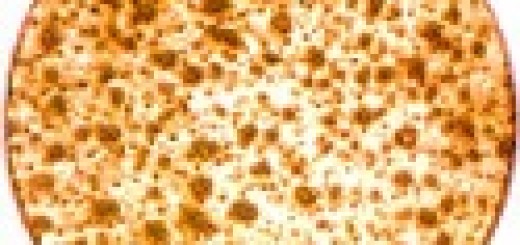By: Zalman Nelson LMSW
Isn’t it time we did away with the whole detailed and difficult Passover seder, long winded out-dated story, the plate full of funny stuff, and all that wine? Everywhere else in the world suffices with a moment of silence to commemorate important things. Besides, who wants to wait so long on Passover night to eat?
Might be easier, but it wouldn’t work.
When the sirens blare for a full minute in Israel in memory of the victims of the Holocaust, I stop like everyone else, say some Psalms, even think about the horribleness of it all and what people went through; having their souls in mind for good things. However, the one-minute of silence doesn’t help me relive it. I’m not there.
Most of us read the Passover Haggadah, the story of liberation from Egypt, as a waltz through history; a recollection of miraculous things that happened long ago to ancestors we never met. Egypt was tough, G-d made lots of miracles, and the Jews went free. In other words, it happened already and that’s it. The whole seder is a commemoration for what others went through.
Did you know that such a view makes several parts of the Haggadah incomprehensible?
For example: “This is the bread of affliction that our forefathers ate in Egypt.” We point at our matzah on our table before us and connect it to…a lie? The Jews never ate matzah in Egypt. The Haggadah itself tells us why matzah: the Jews left Egypt so fast that the dough had no time to rise and so they went out into the desert with matzah.
Or the famous lines we all know: “Now we are slaves but next year we will be free; now we are in exile, but next year we will be in Jerusalem.” Excuse me?! We are slaves? How could that be if we today are the descendants of those who left Egypt? Doesn’t that make us free?
We could go on an on like this, and I hope you will when you sit down to your seder and look deeper into the words. But all of this is only a problem if we look at it with commemoration glasses; that our whole Passover celebration just commemorates an event long ago.
Chuck those specs because they are the wrong prescription.
According to Kabbalah, when the Jews left Egypt it was physical movement out of a geographical location, AND also the beginning of an ongoing process of spiritual, emotional, and behavioral movement that continues to this very day. In fact, it will continue going on until the redemption with Mashiach. The word for Egypt (Mitzrayim) and the word for limitations and constrictions (meytzarim) are related. Thus, the Exodus was a kickoff party, a springboard into the process of continuously working to get past our spiritual, physical, emotional, and intellectual limitations and, by extension, helping those around us and the entire world do it as well.
Life is really an ongoing process of celebrating yesterday’s victory as we simultaneously jump into the next challenge. Because who we are and what we’ve achieved until now, compared to where we were a month, year, and decade ago, is amazing. It’s freedom. But compared to how much more we can achieve and do and become, today is a state of limitation.
A commemoration is just not gonna cut it. If we are personally “Egypting” and getting out, if we are – in a certain sense – slaves and in exile, and eating the same matzah our ancestors ate when they started this process, then we need some real encouragement, inspiration, energizing, and propulsion. We need to go through it ourselves, and the story of the Haggadah and the items on the seder plate and the matzah we eat and the wine we drink, are all symbolic, all set the stage, and all transport us there.
After all, we each got an Egypt to get out of.
(Based on Likkutei Sichot – Vol. 17, p. 78)
Zalman Nelson is an experienced social worker and addiction counselor whose approach to therapy is an integration of psychology, Torah an Chassidic thought. He believes that psychology has advanced since the days of Freud and rather than recognizing the Id, he focuses on the Yid–the Jewish soul. He is extremely successful at his brand of therapy and can be reached at kabbalahtherapy.com.






















